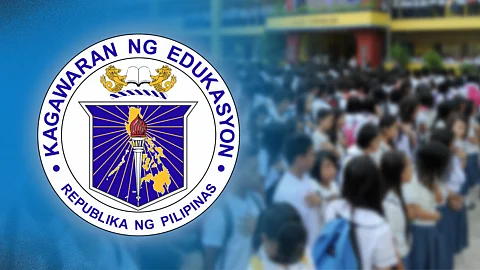
- NEWS
- the EDIT
- COMMENTARY
- BUSINESS
- LIFE
- SHOW
- ACTION
- GLOBAL GOALS
- SNAPS
- DYARYO TIRADA
- MORE

Teaching children aged four years old and below how to pleasure themselves sexually is not part of the curriculum of the Department of Education’s Comprehensive Sexuality Education (CSE).
The agency clarified this on Tuesday during the hearing of the Senate Committees on Basic Education into the rising number of adolescent pregnancy and human immunodeficiency virus among the youth.
“Mr. Chair, no. There’s nowhere in our curriculum that teaches these things to learners between zero to four. We don’t cover that as well because our learners start at five years old in DepEd,” DepEd Assistant Secretary for Curriculum and Teaching Janir Datukan told the panel.
“Like we said, all of the competencies that we have under this Comprehensive Sexuality Education are mapped with existing learning competencies already there in the curriculum,” he added.
Datukan made the clarification after he was asked by Senator Risa Hontiveros whether the specific age group is being taught how to masturbate under the department’s Department Order 31, which focuses on the implementation of the country’s first CSE.
Several groups, particularly Project Dalisay, claim that DepEd’s DO 31 is teaching 0 to four-year-olds how to masturbate as the curriculum is based on the UNESCO guidelines.
‘It is not meant to replace or override the parental authority of parents over their children. It is only complementary, just support.’
Hontiveros, who is pushing for an Anti-Adolescent Pregnancy bill at the Senate, also asked the DepEd whether Republic Act 10354, also known as the Responsible Parenthood and Reproductive Health (RPRH) Act, disregards parental authority.
Datukan clarified such a claim is “far from the truth,” stressing that the department’s CSE is merely a “supplementary.”
“It is not meant to replace or override the parental authority of parents over their children. It is only complementary, just support,” he said.
The RPRH Law mandates the inclusion of CSE in schools but underscores the need for it to be delivered in a manner that is consistent with the religious convictions of the learners’ families.
The CSE is one of the contentious provisions of Hontiveros’ Senate Bill No. 1979, which she eventually replaced by an amended version of the proposed measure following the withdrawal of support of seven senators who initially signed the committee report on the proposed measure.
Those who withdrew their support on the measure were Senators Loren Legarda, Joseph Victor “JV” Ejercito, Bong Go, Ramon “Bong” Revilla Jr., Cynthia Villar, Nancy Binay and Jinggoy Estrada.
Binay, Villar, Go and Revilla, who are all running for different positions in the May 2025 elections, are four of the 18 senators who signed the committee report.
